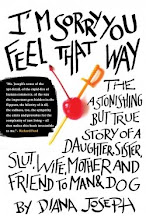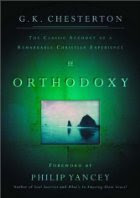2009/05/03
Further Sideways Process
2009/05/02
Twitchiness and Nonretention
I am staring at Einstein's hair! [I am typing this message] Why am I going on and on about this?
2009/05/01
Exclamation: !
What do you think of exclamation marks? Should they, as Elmore Leonard apparently prefers, appear no more than once or twice per 100,000 words of prose? I beg to differ. I love exclamation marks. When used at precisely the right moment, an exclamation mark makes all the difference in rhetorical and/or emotional effect. Exclamation marks convey desparation in a way no other punctuation can. The lesson is use exclamation marks but not to excess!
2009/04/25
Attack of the Silent B's
doubt: redoubt ; doubtful ; doubting ; doubtless
bomb: bomber ; bombing ; firebomb ; nailbomb ; bombast [The B asserts itself in the describing of "Grandiose but empty language"]
aplomb
debt
comb
numb
dumb
crumb: crumble [Aha! The B asserts itself in the act of crumbling!]
plumb
plumber: plumbing
How many more Silent B words are there? How & Why has such a strange (and decidedly unsubtle) construction entered the English language?
Further Notes on the Writing Process
***
[Each reader imagines your scenes a little bit differently. This is why the simplest, most direct, least cluttered prose is the easiest prose a reader can follow. The more you try to control what the reader sees in his mind’s eye, the more each reader will deivate from the scene as you wish it to be seen.]
2009/04/15
Process IX
coppertone mushrooms, rising among black-eyed susans
like live oil slicks, wizard’s caps.
bird houses: made of? to resemble? located where?
awnings
stained glass windows: what design? located where?
sconces
"conestoga" cupboards
red barstools
tennis balls, baskets rain galoshes
"pergola" "arbor" "trellis"
ceramic rooster
[it’s not about what I want. what do the characters want? what do the characters not want?]
down shit crik a snapper’s back a diving submarine
"ensconced"
-Gone, the stepping stones across the yard. Gone, the calm of the road.
-SWAP PAWS WASP (SPAW) Birds wobbled.
-the logic of "as if". "almost as if".
-a drumbeat through the ceiling. Inconsiderate upstairs neighbors. -A great clattering across the floor, of interlocking blocks no longer locked.
-objects that possess: Houses; Desks; Diaries & Journals; Chests; Trunks; Bureaus, Wardrobes
-neaten, neatening
-secrete / secrete
A Checklist
2: Where has it been?
3: Where is it going?
4: How has it come to be as it is?
5: and Why?
6: Is it at risk of infection?
2009/04/11
Vertebrae, Nerve Fibers, Prose
***
Invertebrate writing is out there. Some may know it as "Experimental Writing." Have we ever read a piece of writing that seems to have a bad case of Scoliosis? Or fused vertebrae? The root of "vertebrate," in the Latin, means something like "to turn." INVERT. VERTICAL. VERTIGO. REVERT. PERVERT. SUBVERT. INTROVERT. EXTROVERT. To turn, in one way or another; to make standing; to disorient; to turn back; to turn upon, twist, twist upon itself; to turn under or to turn over; to turn inward, to turn outward; to look inside, to look toward or outward.
***
[Please do not twist my spine]
[Like a mallard’s neck.]
[And do not invert my legs]
[Without first going out]
[Of your way to clarify]
[Whatever it is you want]
[To say - I can’t handle]
[Your perverse prose.]
***
[And do not call.]
[I will not answer.]
2009/04/10
They Came in Leopard Print

Meet the Giant Garden Slug.
The last house we inhabited in southern Illinois had a basement. The foundation was cracked. Water stood upright on the floor. Camel crickets dotted the walls. Mold, black spots of it, along with miniature forests of small mushrooms, grew on the walls. Brown recluses scuttled about. And, at night during the summer, Giant Garden Slugs came up the stairs in a great swarm. I fed them cat food. They seemed grateful for the sustenance. These slugs grew to immense proportions, some longer and fatter than any one of my fingers. Seeing this silent and glistening host at the top of the basement stairs filled me with a sense of paternal pride. They were like my subjects! Never once did I salt them. I miss them today. The Giant Garden Slugs are the only other nonhuman inhabitants of that house that I miss.
2009/04/02
The Latest Fashion for a Night on the Town:
In St. Paul, and other Niceties
Reading List: In No Particular Order
The Collected Stories of Leonard Michaels.
Rock Island Line by David Rhodes.
Celebration by Harry Crews.
The Gospel Singer by Harry Crews (reading now).
Housekeeping by Marilynne Robinson (reading now).
Breaking and Entering by Joy Williams (reading now).
The Accordionist's Son by Bernardo Atxaga.
Flickers by William Trowbridge (reading now).
The Collected Stories of J.F. Powers.
***
Harry Crews writes in such a way that the story moves quickly without losing the reader. I just finished Body. I never once got lost. The novel, many times, made me laugh out loud. Body meets the criteria for what I consider quality writing, fine writing. 1: Moves quickly. 2: Does not lose me. 3: Keeps me interested. 4: Makes me laugh. 5: The end is surprising but, yes, inevitable.
Not many writers are able to do this. Harry Crews and William Maxwell are two. Not even Joy Williams meets all of these criteria (I am enamored of her writing for different reasons I am utterly unable to explain). Have we all read Harry Crews’s novels? I know some of us have read Childhood: A Biography of a Place. But the novels? My god, the novels! A Feast of Snakes! Body!
2009/03/30
Comps, part II: Poetry
The Complete Book of Kong by William Trowbridge
and either
The Dig by Lynn Emanuel
or
The Resurrection Machine by Steve Gehrke
I have little doubt as to the question:
2: Image and Metaphor
The Latest Obsession
2009/03/27
For Whom the Comp Tolls, It Tolls for Thee
"Congress" [from Honored Guest] by Joy Williams
"Charity" [from Honored Guest] by Joy Williams
"The Visiting Privilege" [from Honored Guest] by Joy Williams
"Traveling to Pridesup" [from Taking Care] by Joy Williams
"Winter Chemistry" [from Taking Care] by Joy Williams
"Feast of the Earth, Ransom of the Clay" [from The Ice at the Bottom of the World] by Mark Richard
"What You Left in the Ditch" [from The Girl in the Flammable Skirt] by Aimee Bender
"Quiet Please" [from The Girl in the Flammable Skirt] by Aimee Bender
"The Little Puppy That Could" [from Einstein’s Monsters] by Martin Amis
"The Deal" [from Going Places] by Leonard Michaels
"Scarliotti and the Sinkhole" [from Aliens of Affection] by Padgett Powell
As you can see I am fond of Joy Williams's stories.
And I have narrowed down which questions I will consider:
1: Point of View
2: Characterization
7: Imagery
Decisions.
2009/03/23
The Wonderful World of Verbs
2009/03/22
Not ick; more of a Why-would-you-want-to?
Oh ick, ick, ick
2009/03/18
Distraction, Heart . . . Writings from Nine Months Ago
I should pay attention to Distraction, not to distractions, in whatever form they manifest, but to Distraction itself.
*
How can one distract one's distraction?
*
Distraction. Loss. A sense of outrage. An inability to think rationally and clearly. A grasping at quick fixes that do not fix, and are not quick. A demand for immediate satisfaction of desires, of wants, of success. (Does desire know only gift and theft?) The chasing of happiness, when happiness itself is unknown and undefinable. What the hell is it? "Happy" cannot exist as a verb. It needs a helper: to make, to be, to become. Or it needs an active verb: to pursue, to chase, to grab, to forget, etc.
*
What about thumbtacks? The empty aquarium? The lava lamp that’s missing its base? What things have Heart? Does a bead have Heart? A bead has Heart. A bead’s heart is its hole, through which a twine strings together one bead with other beads, a string of Heart. A bead without its hole is not a bead, but a marble, a pebble, a bit of glass, something else. But not a bead.
---
Absence is Heart. A treasure ceases to be treasure once it is no longer valued. An empty aquarium, aquarium though it may be, contains absence, it contains something that is not there. A shoe without a foot. A ring without a finger. A day without pain.
---
Does a gun have a Heart? Does a bullet count? Does a will, a want, a desire? Is there Heart in an action: picking up a gun in a moment of passion? Throwing down a gun before a fight has begun? Agreement to the use of force by action of the force itself. Disagreement to the use of force by action of dropping the gun. Is there Heart in fear? Fear that is felt by bystanders, preservation, an impulse not toward action but toward words, paralysis. Prayer? Is prayer action or words or both?
---
In Heart lies desire. What truth is in the statement "Desire knows only theft and gift"? What does Heart know? Does Heart know theft? Gift? Absence? Does the hole through a bead desire twine?
---
"So What?" and "Defamiliarization" share something in common. What is it? A new perspective of an old thing. A different understanding of something thoroughly understood. A sensory experience of something that offers no sensory stimulation.
---
What am I seeking? The language of excess. The language of distraction. The language of stories, and myths, and narratives. The language to move readers. The language to argue, to convey, to understand, to escape. The language of characterization.
---
Listen to the background noise, the hiss and chime behind vertical surfaces. What do you hear? How do you hear it?
2009/03/11
Spine & Heart (Process VIII)
Onward.
Have any of us read Orthodoxy by G.K. Chesterton? I am reading this book again (third or fourth time) because I feel my writing has stagnated. Oh I’m producing. I’m writing habitually. But something is stuck. Something in the writing isn’t moving. There is no reason to go out of my way (and out of my wits) to identify what that something is. These somethings happen to us all.
Anyhow. I won’t explain Orthodoxy or summarize it. (To do so would cheapen the experience of reading it for the first time.) Though I will leap into worthwhile passages that have helped me to understand more deeply the Process.
In "The Ethics of Elfland" Chesterton explains the difference between the Reasonable, Necessary logic of actions in actuality and the possibility of the same Reasonable, Necessary logic of actions in fairyland. He is explaining the relationship of what I call "Heart and Spine."
Spine: the structure of literal sense that is necessary for a reader to be able to read the story (analogous to Mathematics, or the Letter of the Law). Without Spine, the story cannot move; it is paralyzed. The narrative has no mobility, no legs to walk on, no arms to wave, no fingers with which to gesture. Without Spine, the processes necessary for a narrative body to do anything cannot happen.
Heart: the figurative and emotional sense that is necessary for a reader to be able to relate to the story (analogous to the Spirit of the Law). Without Heart, the story may as well be a technical schematic, a complex algebraic equation, a health insurance policy. Without Heart, the story lacks emotion as well as the means of carrying the weight of emotion through language.
"The test of fairyland [is] the test of the imagination" (69). For example: "The witch in a fairy tale says, ‘Blow the horn, and the ogre’s castle will fall’; but she does not say it as if it were something in which the effect obviously arose out of the cause. Doubtless she has given the advice to many champions, and has seen many castles fall, but she does not lose either her wonder or her reason. She does not muddle her head until it imagines a necessary mental connection between a horn and a falling tower."
In narrative, Heart embodies mystery. Spine does not. But Spine is necessary in order to understand the story at all. With paralysis the Heart may or may not go on beating; regardless, it is lost to us. When we read the story of a witch who tells a champion, "Blow a horn, and the ogre’s castle will fall", if we immediately stop to question the witch ("Why must the champion blow a horn? That doesn’t make sense. What he needs to do is raise an army, or find some way to trick the bastard, or hire someone else to do the dirty work...etc.), then we destroy the mystery. We rip the Heart out of the story and squeeze the life out of it. The witch’s advice is part of the mystery. The witch herself is part of the mystery. No one can explain it definitively. There is no denotation. You can define what mystery itself is, but you cannot explain any given mystery. That is the Heart of a story. The Thing-in-Itself cannot be explained. And of course, if we rip out the Heart, the Spine becomes a mere spine, a structure without purpose. A structure for the sake of itself. Of what use is such a thing?
A Slowly Growing List of Things to Look Forward To When You Have a Child
- Every day is either Christmas or Halloween or Birthday or Easter
- Leave those cats alone! They're going to scratch you and it will hurt
- You cannot lie under circumstances, but nor can you tell the literal truth
- Geez that kid is sharp
- Can I have cake? Can I have cake? Can I have cake? Huh? Daddy? Can I have cake?
- For the last time, stop asking me!
- Noticing the growth: taller and a bit heavier to carry
- Children's television shows
- Food. Wasted food
- Remembering that you once acted this way yourself
- Watching where the both of you are going
- The joy of hearing the word "fuck" being used experimentally, and justifying this experimentation by saying "Well they learn it eventually"
- TANTRUMS
- Sitting down together on the living room floor, a mess of blocks & cars & plush Care Bears strewn around you, discussing the complexities of each car's identity, its name, and why it is so humorous
- Having to take responsibility for someone else for a change
- More frustration than you're prepared for
- Wicked cackling
- Drawings of potato guys
- Learning about the world all over again
- Circular Logic
- Unexpected hugs and words put beautifully together out of context
- Waking up after 4 hours of sleep, and unexpectedly having to confront shit, in more than one place, including the carpet, a big toe, a butt, a bed, a toilet seat, and underpants









